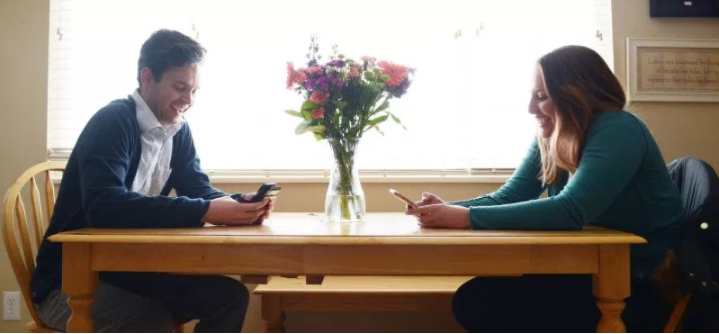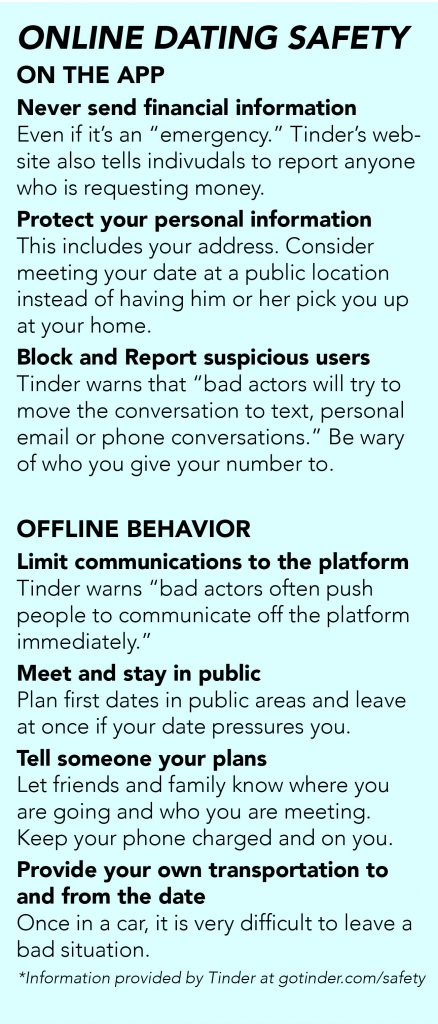
Utah, especially Provo, is known for its wide use of Tinder, but it’s also one of top markets for another online “meet” market: Mutual. BYU students say the Mutual app isn’t always what they expected — for better and for worse.
BYU sophomore Benjamin Williams from Las Vegas said he was originally wary of dating apps like Mutual. Now, he said he thinks the app could be “inspired.”
“The coolest thing about this is I can feel myself becoming more confident to ask girls because I know this is the purpose of the app,” Williams said.
Williams said he convinced several men in his church Elders Quorum to get the app.
Mutual has features similar to Tinder, and was released in April 2016. It had very few users at the time. Founder Cooper Boice said there are now “tens of thousands” of individuals on the app. About 15,000 users have joined Mutual in the last month alone.
Utah and Idaho single adults dominated the users at first, but Boice said at least half of its users are now outside of Utah and Idaho.
Boice said the goal of the app is to get people in relationships.
“But our goal is to get people off the app as soon as possible,” Boice said.

Boice said he is aware of at least a couple dozen couples who have married because of the app.
“The very first couple that got married from mutual, the girl was totally against online dating apps,” Boice said. “She eventually downloaded Mutual and then was on it for an hour, and within the hour she found the guy she married.”
Of course, while some people leave the app because of new relationships, others are leaving because of a bad experience. Williams’ roommate, BYU sophomore Brycen Duckworth, said he had a very different experience with the app than Williams.
“He’s been having a lot more success,” Duckworth said. “He’s been getting an ego boost, where mine is going down.”
BYU junior Carlie Derrick said there’s more to be worried about than simply having too few matches or a few awkward dates. She and her roommate, Risa Fly, tried the app for a week.
Derrick said she gave her number to a boy she had been talking to on Mutual and then received an explicit FaceTime call from the Mutual boy. Derrick reported the user, who was immediately removed from the app, but said she still felt “yucky” after the incident. She eventually deleted the app.
“It’s easier to avoid these things when you meet these boys normally,” Derrick said.
Derrick said the FaceTime experience made her feel wary of the dates she had already planned from Mutual matches.
“Just because we’re LDS doesn’t mean you’re not going to get those people,” Derrick said.
Mutual user and BYU alumnus Carson Mellott said it’s users like the one Derrick matched with who ruin the kind of dating setting Mutual is trying to create.
“That guy … is giving us guys a bad name because that’s what this app is kind of aimed at avoiding,” Mellott said. “It’s an LDS-based app. It’s kind of supposed to be for people who, supposedly, have a different standard for dating.”
Mellott said he blames technology.
“Technology gives you physical and emotional distance from someone else — you feel like you can say whatever you want,” Mellott said.
Tyler Hudgens, a Salt Lake City Mutual user, said online dating can be a double-edged sword. He said online dating presents an interesting scenario in which another person can often be disrespectful without consequences because the offended individual doesn’t know the offender’s social circle, so there is little worry about a ruined reputation if he or she does something highly offensive.
“It’s kind of like the whole idea, ‘What would you do if you couldn’t get in trouble?’” Hudgens said. “I think that mentality leaks into the online dating.”

Boice said Mutual tries to prevent inappropriate behavior by processing individuals before they even go on the app. This processing time can take up to 24 hours, but usually only takes two hours.
Williams said he thinks potentially meeting his future wife through the app would be “a really cool story,” but Duckworth said he would prefer a different story.
“But the bottom line is, we’re all just kind of on this quest to find our best friend, and whether or not that is found in the ward or in class or online, you just want to find your best friend,” Duckworth said. “It’s all about the end result for me.”
To hear more about Williams’, Derrick’s and others’ journeys with Mutual, listen to the podcast below.




